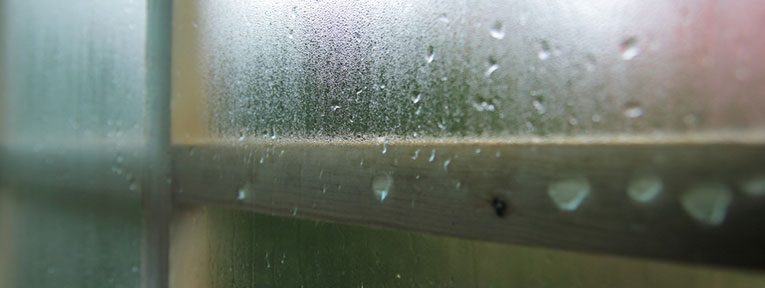
The Basics and Benefits of Removing Humidity from your Home
When it comes to cooling your home in some regions of the country, humidity control is as big of a problem as high temperatures. Unlike the arid Southwest, the Southeast and parts of the Midwest have very high humidity in the summer months and this can result in higher than necessary energy bills if you aren’t careful.
Humidity is behind the “heat index” you hear on the weather report and drives the “feels like” temperatures that are usually several degrees hotter than the actual temperature. Selecting and properly sizing your air conditioning equipment to deal with humidity is a little more difficult than just getting something that keeps you cool on the hottest days.
The Basics of Removing Humidity
Most central air conditioning systems are capable of removing humidity from the air in your home. Window units or ductless systems do not generally move enough air through the system to remove the humidity evenly from your entire home. While most central AC systems will work, effectively controlling your humidity so you’re comfortable day and night is best achieved with a high efficiency system.
Why?
- To remove humidity, an air conditioner has to be running. Basic, minimum 13 SEER systems typically run in either “on” or “off” mode. High efficiency systems (16 SEER and up) usually provide variable speed capacity which can run longer on lower power, giving the system more time to remove humidity.
- High efficiency systems are able to control the temperature more precisely, eliminating noticeable cold or hot swings and not allowing humidity to build up in the air.
- Because the air is constantly being conditioned with a high efficiency system, there is much less chance of stagnant humid air causing mold in the walls or attic.
Additional Benefits
In addition to the added comfort you’ll feel with a high efficiency system capable of removing humidity, they also run much more quietly, which can be a benefit at night when you’re trying to sleep. Because they run on variable speed, high efficiency systems are also much more energy efficient, which translates to money saved every month on the energy bill.
The Bottom Line
If you live in an area of the country that is naturally humid, talk to your contractor about humidity control and higher efficiency systems that can provide you with a comfortable environment, not just cold air.
Watch this video to learn more about the comfort and health benefits of high efficiency AC systems.
After reading this are you more or less likely to explore a high efficiency system? How important is humidity control in your home?



